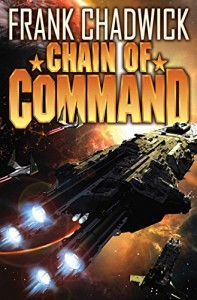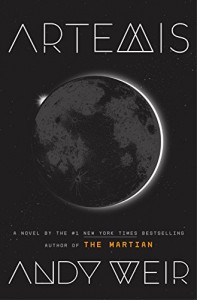Editor David Hartwell died yesterday (January 20th, 2016) following an accident. (http://www.tor.com/2016/01/20/tor-books-editor-david-g-hartwell-1941-2016/).
As someone interested in a critical view of science fiction and hard sf in particular, David was an inspiration and a source of encouragement whenever I saw him at conventions or SFWA gatherings. I liked him quite a lot, and I’ll miss him and his ongoing contribution to the field.
Back in 2002 I did an interview with him for SFRevu, which I’m reposting here.
David Hartwell Interview:
After getting Co-Editor Kathryn Kramer to autograph my copy of The Hard SF Renaissance while breastfeeding, I dragged her husband and collaborator, David Hartwell, off to talk about the book, SF, and David Hartwell.
Ernest: Dealers have repeatedly tried to pry this book out of my cold dead hands…
David: That’s great, but actually we have a commercial disaster here. Because of the various print problems (it had to go back to the printer) it slipped in the publication schedule, went into a different catalog season, and lost all the reorders (because it came out later than planned).
Ernest: Hopefully, if you bring this out as a trade…
David: Which we will.
Ernest: …the short quantities will make readers really hungry for it, and the Hardcover copies will become collectables right away. It’s a great collection, and I liked it a lot.
David: We’re very proud of it, we’re pleased with the reception it’s gotten so far. We have a companion volume on Space Opera we hope to have out early next year.
Ernest: What’s it going to be called?
David: The Space Opera Renaissance.
We started out doing one book. We knew there was a big thing happening in the 90’s, and it involved Hard Science Fiction and Space Opera. We thought that’s what we were working with, but when we really examined the stories, the writers, and what the writers said about the stories, we realized we were working with two different pieces of the evolution of the literature. That Hard SF and Space Opera were both changing. There were developments happening at the same historical moment…but they weren’t really related. There was another development at the same time — Alternate History, but that was a new wave, not a renaissance and we weren’t following that.
One of the things about SF is that nothing ever really goes away. Every different kind of science fiction from the 30s to the present has still been written all along, but these things were prominent developments in the 90s.
We were calling the book The Science Fiction Renaissance, and we got to a point about halfway through the book when decided to divide it into Hard SF and Space Opera.
Ernest: The current volume has 41 stories, which still isn’t exactly light reading.
David: Oh no. In order to document a historical process, we need a lot of examples, and they can’t be short, minor examples, they have to be fairly major. That’s how you prove your case. That’s what literary evidence is. You need a big book.
Ernest: Well, there were twelve authors in Mirrorshades, the definitive Cyberpunk anthology, and James Kelly said that half of them were dragooned into “The Movement” because Bruce Sterling had only come to you with six… David: …and I said that you need twelve to make a movement. So Bruce looked around and said, “I can find twelve.” Ernest: Well, there were twelve authors in Mirrorshades, the definitive Cyberpunk anthology, and James Kelly said that half of them were dragooned into “The Movement” because Bruce Sterling had only come to you with six…
David: …and I said that you need twelve to make a movement. So Bruce looked around and said, “I can find twelve.”
And yet, it was a very strong book. Mirrorshades was a very good, very strong book.
Ernest: How do you work on the book?
David: First we do a lot of research in Best of the Year lists, and volumes, and Locus polls and Nebula lists and that sort of thing to try and define the universe of stories we should be dealing with.
When we have a list of four or five hundred stories that are relevant to our topic, we try to find them, and we start to read both the stories and their context. What the writers said about them, what other people said about them when they were published. After going through that sifting process, we pick what we consider the most prominent examples. Not necessarily the best stories, in the pure story sense but the most prominent and important examples and make the book contents of that.
Ernest: so how easy is it to decide on the collection.
David: We spend about half the process adding and subtracting stories until we’ve got a structure we think is very solid and then we spend about two months of really intensive work putting everything in the story notes. We’ve written the introduction after we’ve done the research, and we redraft the introduction after we get the stories and have a better idea of what we’re doing.
Ernest: If the Golden Age of SF was about twelve, as you said in The Age of Wonder, what’s the age of the New Hard SF? Has it grown up at all?
David: The Golden Age of SF is Twelve is a metaphorical as well as a literal statement. There is always a certain percentage of Science Fiction that’s written in adult language that’s beyond the interest range of most 12 to 15 year olds…but that’s a minority. The majority of it is still accessible to the wild eyed younger reader who has discovered Science Fiction and is very enthusiastic.
Ernest: But doesn’t the New Hard SF incorporate the adult concerns at least to the point where the stories make sense on those levels? That they’re defensible in adult terms?
David: I don’t know. Kids…fifteen year olds say…in the same week a fifteen year old can read a Hardy Boy’s Mystery and Samuel Delany’s Dahlgren, and get something different out of each of them. So I don’t want to make too many find distinctions about age of audience, because I think one of the strengths of the New Hard SF is that it’s for nearly the entire Science Fiction readership. I don’t think it’s a sudden grown up version, I think it’s simply very, very, good.
There used to be a concerted attempt among the magazines and publishers of Science Fiction to keep the language accessible to twelve year olds and to make it not offend their parents. This was explained to me in some detail when I came into the publishing industry in 1970. That had gone out the window by ’75.
Fred Pohl told me that he edited so as not to offend the parents of twelve year olds, so that the kids could read the magazines. He wasn’t worried about the twelve year olds themselves.
Ernest: Growing up, did you come from a reading household or were you a closet reader?
David: My father was an MIT engineer, and never read fiction for pleasure. He read technical journals. My mother was a grade school teacher, and I picked up on science fiction when I was in the 5th grade (which would make him…not quite 12) and I started reading it obsessively, neurotically, compulsively, enthusiastically.
Ernest: So, what was the first book?
David: The first book was Tom Swift and his Television.
Ernest: Wow. That must have been late in the original series.
David: Very late. I went back and found the rest of the original series and read them in a great big gulp. (Tom Swift and his Electric Runabout, Motorboat, Giant Canon…and others too amazing to name.) Then I went to the Grade-School librarian for “more like this” and was introduced to both the town librarian and the college librarian, who pointed me towards anthologies. So my first year of reading Science Fiction was mostly that.
Ernest: So you got hooked on anthologies early on.
David: Absolutely. When I started editing some of the first books I edited were anthologies. Before I was an editor, going back to the 1960s, I tried to sell a couple of anthologies. I was a graduate student at Columbia, and I met a couple of editors, and they said…in effect…”Go away.”
There was an idea, prevalent, especially among readers, that anthologies must be easy to do. Which is not the case. It’s easy to do a bad anthology, but it’s very difficult to do a really good one.
Ernest: But I understand that anthologies don’t pay very well…especially for the editor.
David: Well, I got a six figure royalty for one of my anthologies, because it got picked up as a Science Fiction Book of the Month, and all the authors got additional royalties. That was a long time ago, but it was real money.
Ernest: But not everyone can be David Hartwell.
The two authors that I really liked were Robert A. Heinlein, and Kurt Vonnegut. It’s kind of an accident that I stumbled onto Vonnegut early, but his Player Piano was a selection of the Science Fiction Book Club the first year, and I was in Seventh grade. I was knocked over by Player Piano. David: I wasn’t David Hartwell, the anthologist then. That anthology was Dark Descent, which was a historical book about the evolution of Horror, and it was my first anthology.
Ernest: Who were your favorite authors when you were young?
David: The two authors that I really liked were Robert A. Heinlein, and Kurt Vonnegut. It’s kind of an accident that I stumbled onto Vonnegut early, but his Player Piano was a selection of the Science Fiction Book Club the first year, and I was in Seventh grade. I was knocked over by Player Piano.
Ernest: Player Piano was about automation and society…
David: It’s a humorous morally committed dystopian novel about post WWII Schenectady New York…and it’s a book I still like and admire. I was waiting for his next novel which was Sirens of Titan, several years later. I was meanwhile finding his stories in Science Fiction Magazines. I was going around trying to get people to read Mother Night, which was a non-SF novel sort of take on John Campbell. It was another really good one, and it’s been made into a really good movie no one has seen.
So, Heinlein and Vonnegut were both dealing with the same social concerns at the same time, but in diametrically opposed ways. For some reason, I was fascinated with both of them.
To say that they were my two favorite writers isn’t to say I wasn’t in love with dozens of others. I was crazy about Theodore Sturgeon. The first two paperbacks I bought, on the same day, were More Than Human and Childhood’s End. Ballantine paperbacks with Powers covers. Years later I bought the two covers along with my friend Paul Williams. He got the Sturgeon and I got the Clarke.
Ernest: Why is it always Heinlein?
Heinlein, in the generation after H.G. Wells, is simply the most important Science Fiction writer. He was the one who was so consistently imaginative, consistently prophetic in his attitudes, was able to take in so many things outside him that other writers weren’t able to deal with in such a general and global way…and he was a great con man. David: Well, Heinlein, in the generation after H.G. Wells, is simply the most important Science Fiction writer. He was the one who was so consistently imaginative, consistently prophetic in his attitudes, was able to take in so many things outside him that other writers weren’t able to deal with in such a general and global way…and he was a great con man. For the purpose of his stories he could con you into believing almost anything. He could con you into believing things you were too smart to believe in daily life. I loved the stuff. I thought he was wonderful.
He had this marvelous narrative voice in his fiction that seemed completely credible.
Obviously, he doesn’t speak to readers fifty years later the same way he did in 1950, but the only writer that has that kind of voice today is Scott Card.
Scot Card has this kind of wonderfully plausible voice that speaks to readers in a very important way. And Scott Card is a very major writer. There are ways in which he’s underrated, no matter how popular he is.
Ernest: Card doesn’t give the reader the kind of “you can be anything you want” message that Heinlein does. What does the reader take away from Card?
David: Different things from different books. Ender’s Game, which is certainly as popular as Heinlein, lets you take away the fantasy of being a super-kid. It’s an empowerment fantasy, discovering that you’re really, really powerful. That you really can affect the world, the galaxy, the universe. And that your actions have moral ramifications, which as the series goes on are pretty ambiguous. But that’s good, and it’s part of the great tradition.
But there are lots of great traditions. Sturgeon was not like Heinlein, and Donald Kingsbury was not like Asimov…though Kingsbury writes in the same tradition…the wonderful rationalist tradition.
Ernest: In the Hard SF Stuff, I’ve always loved the dry Clarkian style.
David: Sure, and Benford and Steve Baxter and others are working in that vein, which is great.
Ernest: The female authors in the collection are about 10%, which seems to be about the representation
David: I’ve gotten 22% submissions in my poetry magazine over the years. Now, during the seventies, during a period of consciousness raising we did two important all women issues to encourage submissions from women. And then it went right back to 26-27%. And we had editors who were really, really, committed to doing this. People like Marilyn Hacker and Barbara Damrosch, very very high class stuff. But in most markets it’s still 27% and nobody cares who wrote it, they just care if it’s good.
Ernest: So should we stop worrying and just let what happens happen?
David: Yes. I don’t mind affirmative action from time to time, you can do an all women’s issue, or an all Caribbean issue or whatever. But when you go back to it the percentages will the same.
Ernest: What’s your title now at the New York Review of Science Fiction? Will the review ever go online?
David: It slides around. I’ve got an issue here…let me see. I’m the “Review and Features Editor”. If we ever had the volunteer labor, yes. But it’s got no economic model, except that we’ve got to break even. That’s our rule.
 Beef Bourguignon is the French cousin to pot roast, with the addition of red wine, large cubes of beef and very slow cooking to make it all tender. At the end, the liquids are separated from the beef, carrots, potatoes and onion and reduced and thickened to become a silky sauce to serve over the solids.
Beef Bourguignon is the French cousin to pot roast, with the addition of red wine, large cubes of beef and very slow cooking to make it all tender. At the end, the liquids are separated from the beef, carrots, potatoes and onion and reduced and thickened to become a silky sauce to serve over the solids.

